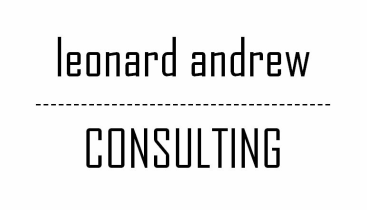This past weekend, I had the opportunity to interview two IVY League graduates who perform interviews for prospective students. They do this voluntarily for their alma mater, Brown University.
I asked them what they wish students knew when preparing for their interview, and they were both forthcoming with information that will help you understand the interview process better.
Their answers might surprise you!
- They want to recommend you.
Do you want to know what both interviewers I spoke with had in common?
Out of the several dozen interviews they’ve held over the years, neither of them had ever declined to recommend a student to their university.
Although they admitted that there were a few candidates whom they didn’t recommend as strongly, they promised that this was a rare occasion. Where did these candidates go wrong? “They didn’t know basic things about the school, and it showed me they weren’t invested in finding out if our school was the best fit for them,” said one interviewer.
College interviewers want you to do well, and they will likely give you many opportunities to bring your best self forward. They’re on your side. And, it’s nice for them when someone they interviewed gets accepted.
2. The process is unforgiving and isn’t personal.
Both interviewers I spoke with described the admissions process as “unforgiving.”
If they were clear on one thing it was this: it’s a numbers game. “If 30,000 students are interviewed, 10,000 might fit in perfectly at our school, and there may be room to accept only 2,000,” said one of the IVY league interviewers.
Therefore, they stressed that applicants should not take a rejection letter from a highly selective school personally. It doesn’t mean that you wouldn’t perform well there, and it certainly doesn’t mean you received a bad review from your interviewer. What it means is that the numbers simply didn’t work in your favor.
3. Their first impression of you isn’t on the interview
When I asked one interviewer about her biggest interview pet peeve, she was quick to reply with “a lack of response to my emails.”
If the interviewer sends you an email to set up your interview, then consider that your first chance to make a good impression.
Respond promptly to the interviewer’s emails to show that you respect her time. Your language may be casual and friendly, but the overall look of your email should be professional. Double check your email before you send it.
Be sure to use an email address that you check frequently. An interviewer should never have to spend time trying to get in contact with you.
4. You should be authentic instead of impressive.
At certain universities, interviewers are given prompts to ask applicants on the interview, and they are trained to look for certain qualities. For example, they might be asked to look for joy, curiosity, or integrity. The interviewers are looking for qualities in you that match the vibe at their school.
One interviewer said she wished students didn’t try so hard on the interview because it often comes across as insincere and forced. The rest of your application serves as your way to impress admissions officers. Your interview is a chance for the college to see your character.
The best way to perform well on an interview is to be true to your character--be authentic; this is how the interviewer will be able to determine if you fit. Answer the prompts honestly. The interviewers know how to read between the lines to see the qualities they are looking for.
5. You should also interview them.
Words of advice: get your interviewer to talk.
Both IVY League interviewers said their best interviews were ones where the prospective student also interviewed them.
“I want the student to show me that he is also looking for a good fit for him,” said one interviewer.
While the goal of the interview is for the interviewer to determine if you are a good fit for their school’s community, they also want to know that you are looking for the same thing.
Come prepared to the interview with questions you’d really like to know about the graduate’s experience at the school. If you do get in, your interviewer’s answers might help you make the right decision about whether or not you’d like to attend!
Have you had success with these strategies on an interview? If so, we’d love to hear about it! E-mail Jackie at [email protected] or the LAC team at [email protected].
Written by Jaclyn Corley, founder of The College Essay Captain, a private tutoring company that develops online courses and runs workshops for the writing components of college admissions. The company is a tremendous resource for students, and Jaclyn has made it her mission to inspire people to tell empowering stories. The College Essay Captain now offers a free online mini-course that teaches students how to write their admission and scholarship essays by focusing on the science of success and the art of writing. The College Essay Course is available at thecollegeessaycourse.com/overview.


 RSS Feed
RSS Feed